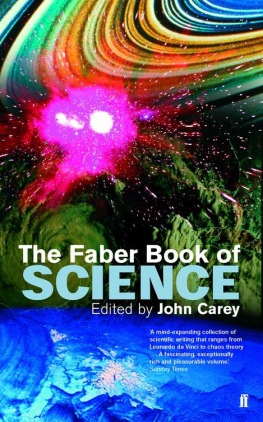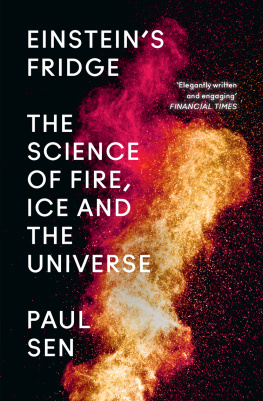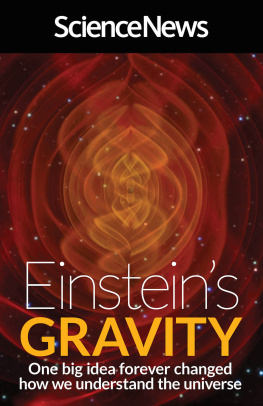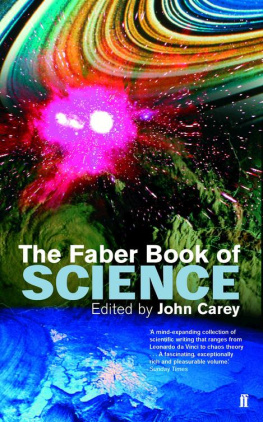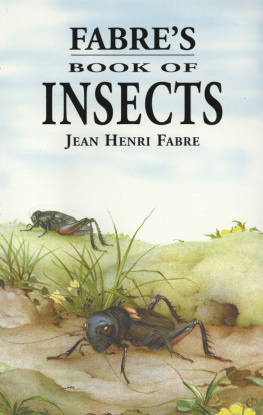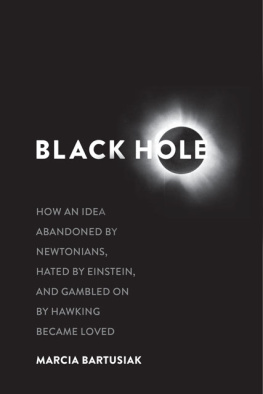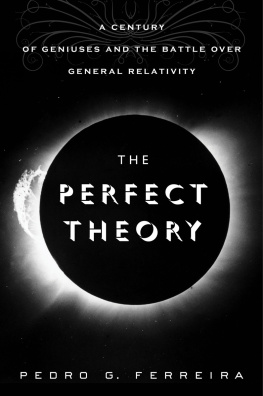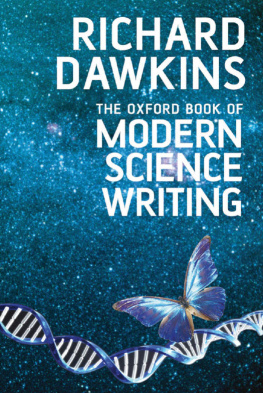As a book to pick up and dip into from time to time, this will be a compelling volume to artists and scientists alike. NewScientist
Professor Careys anthology had me gripped The fruit of wide reading and impressive understanding. SundayTelegraph
This is a delightful, enchanting book the erudition of ages garlanded by Careys dry wit and infectious enthusiasm. MailonSunday
A series of fascinating essays in such diverse subjects as malaria, the first electric light bulbs, early photographs and Charles Lyells shocking revelations on the shifting of rocks. A must for all those, like me, who long to be educated, and fast. Beryl Bainbridge, Books of the Year, Independent
A big, beautiful, desirable book, including marvels like Ruskin in praise of the russet velvet of rust, or Nabokov waiting among the darkening lilacs to spot the vibrational halo of an olive and pink Hummingbird moth. DailyTelegraph
Contents
Prelude: The Misfit from Vinci
Leonardo da Vinci
Going inside the Body
Andreas Vesalius
Galileo and the Telescope
Galileo Galilei
William Harvey and the Witches
Geoffrey Keynes
The Hunting Spider
Robert Hooke and John Evelyn
Early Blood Transfusion
Henry Oldenburg and Thomas Shadwell
Little Animals in Water
Antony van Leeuwenhoek
An Apple and Colours
Sir Isaac Newton and others
The Little Red Mouse and the Field Cricket
Gilbert White
Two Mice Discover Oxygen
Joseph Priestley
Discovering Uranus
Alfred Noyes
The Big Bang and Vegetable Love
Erasmus Darwin
Taming the Speckled Monster
Lady Mary Wortley Montagu and Edward Jenner
The Menace of Population
Thomas Malthus
How the Giraffe Got its Neck
Jean-Baptiste Lamarck,
George Bernard Shaw and Richard Wilbur
Medical Studies, Paris 1821
Hector Berlioz
The Man with a Lid on his Stomach
William Beaumont
Those Dreadful Hammers: Lyell and the New Geology
Charles Lyell
The Discovery of Worrying
Adam Phillips
Pictures for the Million
Samuel F. B. Morse and Marc Antoine Gaudin
The Battle of the Ants
Henry David Thoreau
On a Candle
Michael Faraday
Heat Death
John Updike
Adams Navel
Stephen Jay Gould
Submarine Gardens of Eden: Devon, 18589
Edmund Gosse
In Praise of Rust
John Ruskin
The Devils Chaplain
Charles Darwin
The Discovery of Prehistory
Daniel J. Boorstin
Chains and Rings: Kekules Dreams
August Kekule
On a Piece of Chalk
T. H.Huxley
Siberia Breeds a Prophet
Bernard Jaffe
Socialism and Bacteria
David Bodanis
God and Molecules
James Clerk Maxwell
Inventing Electric Light
Francis Jehl
Birds Custard: The True Story
Nicholas Kurti
Birth Control: The Diaphragm
Angus McLaren
Headless Sex: The Praying Mantis
L. O. Howard
The World as Sculpture
William James
The Discovery of X-Rays
Wilhelm Roentgen, H.J.W. Dam, and others
No Sun in Paris
Henri Becquerel
The Colour of Radium
Eve Curie
The Innocence of Radium
Lavinia Greenlaw
The Secret of the Mosquitos Stomach
Ronald Ross
The Poet and the Scientist
Hugh MacDiarmid
Wasps, Moths and Fossils
Jean-Henri Fabre
The Massacre of the Males
Maurice Maeterlinck
Freud on Perversion
Sigmund Freud and W. H. Auden
Kitty Hawk
Orville Wright
A Cuckoo in a Robins Nest
W. H. Hudson
Was the World Made for Man?
Mark Twain
Drawing the Nerves
Santiago Ramn y Cajal
Discovering the Nucleus
C. P. Snow
Death of a Naturalist
W. N. P. Barbellion
Relating Relativity
Albert Einstein, Bertrand Russell,
A. S. Eddington and others
Uncertainty and Other Worlds
F. W. Bridgman and others
Quantum Mechanics: Mines and Machine-Guns
Max Born
Why Light Travels in Straight Lines
Peter Atkins
Puzzle Interest
William Empson
Submarine Blue
William Beebe
Sea-Cucumbers
John Steinbeck
Telling the Workers about Science
J. B. S. Haldane
The Making of the Eye
Sir Charles Sherrington
Green Mould in the Wind
Sarah R. Reidman and Elton T. Gustafson
In the Black Squash Court:
The First Atomic Pile
Laura Fermi
A Death and the Bomb
Richard Feynman
The Story of a Carbon Atom
Primo Levi
Tides
Rachel Carson
The Hot, Mobile Earth
Charles Officer and Jake Page
The Poet and the Surgeon
James Kirkup and Dannie Abse
Enter Love and Enter Death
Joseph Wood Krutch
In the Primeval Swamp
Jacquetta Hawkes
Krakatau: The Aftermath
Edward O. Wilson
Gorillas
George Schaller
Toads
George Orwell
Russian Butterflies
Vladimir Nabokov
Discovering a Medieval Louse
John Steinbeck
The Geckos Belly
Italo Calvino
On The Moon
Neil Armstrong and Buzz Aldrin
Gravity
John Frederick Nims
Otto Frisch Explains Atomic Particles
Otto Frisch, Murray Gell-Mann and John Updike
From Stardust to Flesh
Nigel Calder and Ted Hughes
Black Holes
Isaac Asimov
The Fall-Out Planet
J. E Lovelock
Galactic Diary of an Edwardian Lady
Edward Larrissy
The Light of Common Day
Arthur C. Clarke
Can We Know the Universe? Reflections on a Grain of Salt
Carl Sagan
Brain Size
Anthony Smith
On Not Discovering
Ruth Benedict
Negative Predictions
Sir Peter Medawar
Clever Animals
Lewis Thomas
Great Fakes of Science
Martin Gardner
Unnatural Nature
Lewis Wolpert
Rags, Dolls and Teddy Bears
D. W. Winnicott
The Man Who Mistook his Wife for a Hat
Oliver Sacks
Seeing the Atoms in Crystals
Lewis Wolpert and Dorothy Hodgkin
The Plan of Living Things
Francis Crick
Willow Seeds and the EncyclopaediaBritannica
Richard Dawkins
Shedding Life
Miroslav Holub
The Greenhouse Effect: An Alternative View
Freeman Dyson
Fractals, Chaos and Strange Attractors
Caroline Series and Paul Davies,
Tom Stoppard and Robert May
The Language of the Genes
Steve Jones
The Good Earth is Dying
Isaac Asimov

